It’s always impressive when you open a beer, pour it into a glass, and before you can even raise it to your face, the aroma grips your senses. And since smell and taste are intertwined, craft brewers know the power of this extra boost. They employ a brewing technique called dry-hopping to supercharge hop character so it leaps from the beer you’re drinking.
Dry-hopping entails adding hops late in the brewing process, most often in fermentation tanks, to ramp up specific aromas and flavors without extracting more of the bittering qualities of hops.
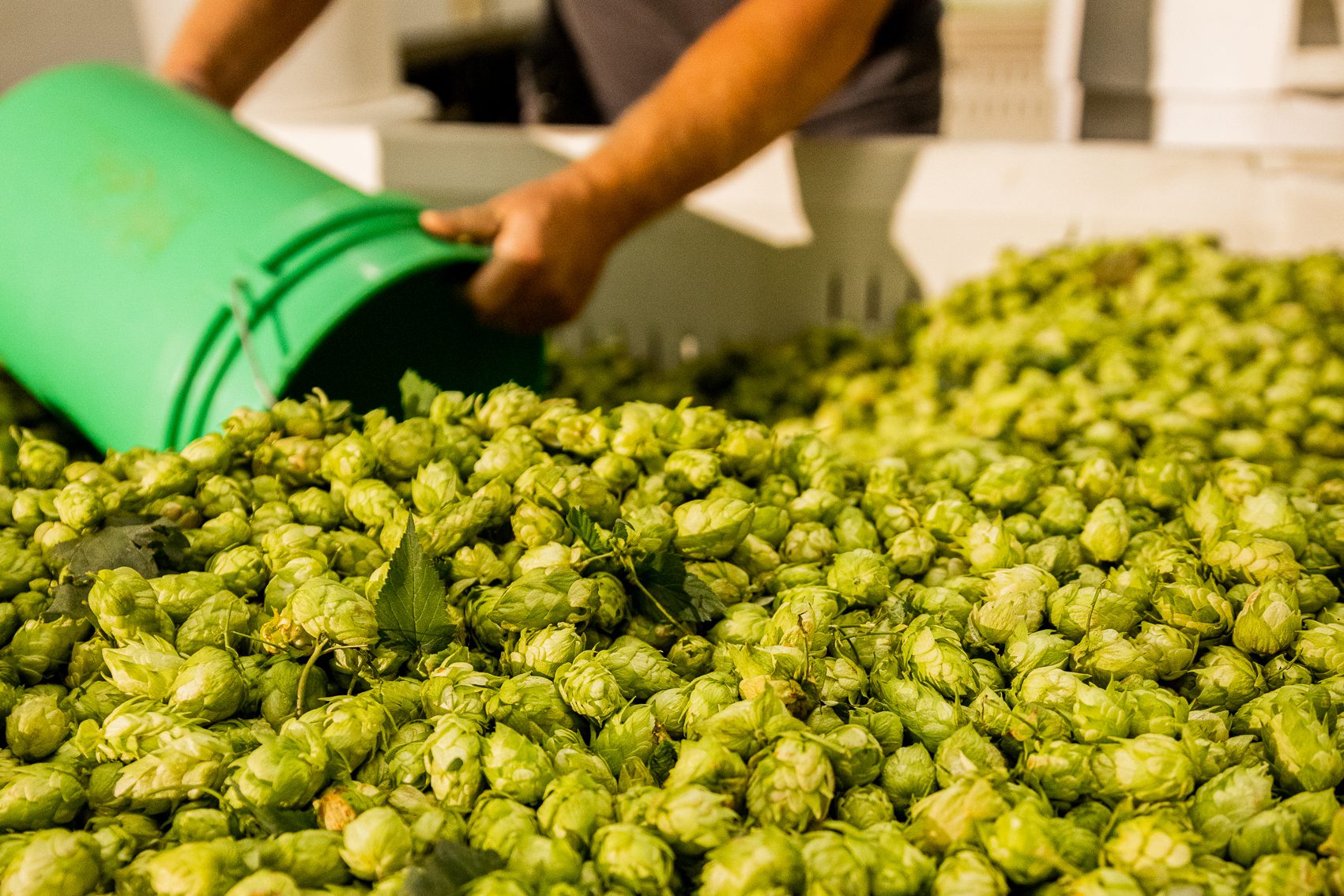
If you look at the anatomy of a hop, there are yellow pods or glands inside of hop cones called lupulin. These little treasures hold the resins and essential oils that drive bitterness, aroma, and flavor in IPAs and other hop-forward beers. And brewers have to be strategic when using hops because the resins and oils respond differently to heat.
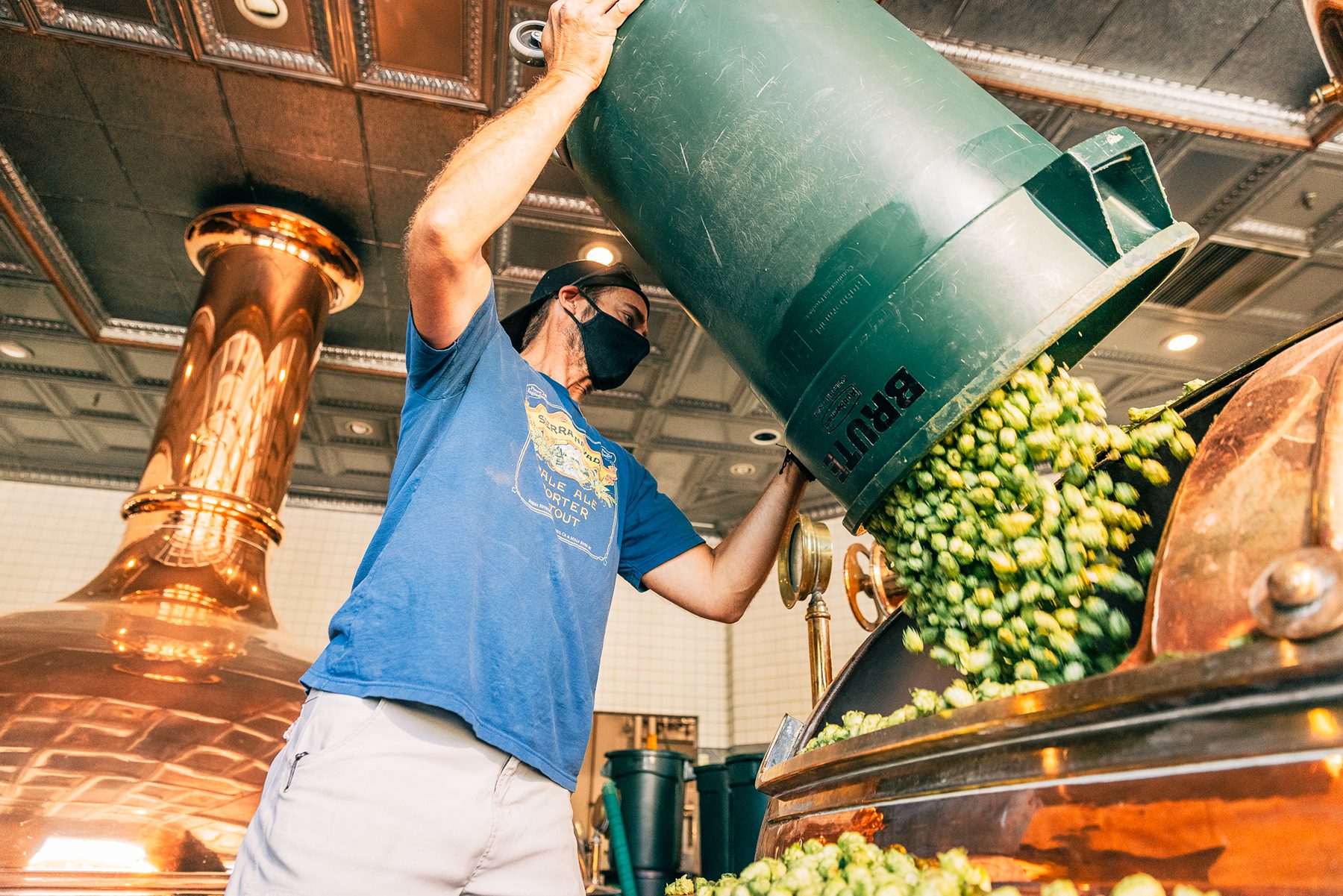
How We Dry Hop Our Beer
There are numerous methods for dry-hopping beers, and we’ve perhaps used them all in our 40+ years as a brewery. The most common and longstanding approach, at least with whole-cone hops, is filling nylon bags with hops and suspending them inside fermentation tanks — kind of like an enormous batch of tea. We use a chain pulley system to make the attachment and retrieval of bags a bit easier, plus it prevents the bags from simply floating to the top. Bigfoot Barleywine and Celebration IPA are among our beers dry-hopped this way.
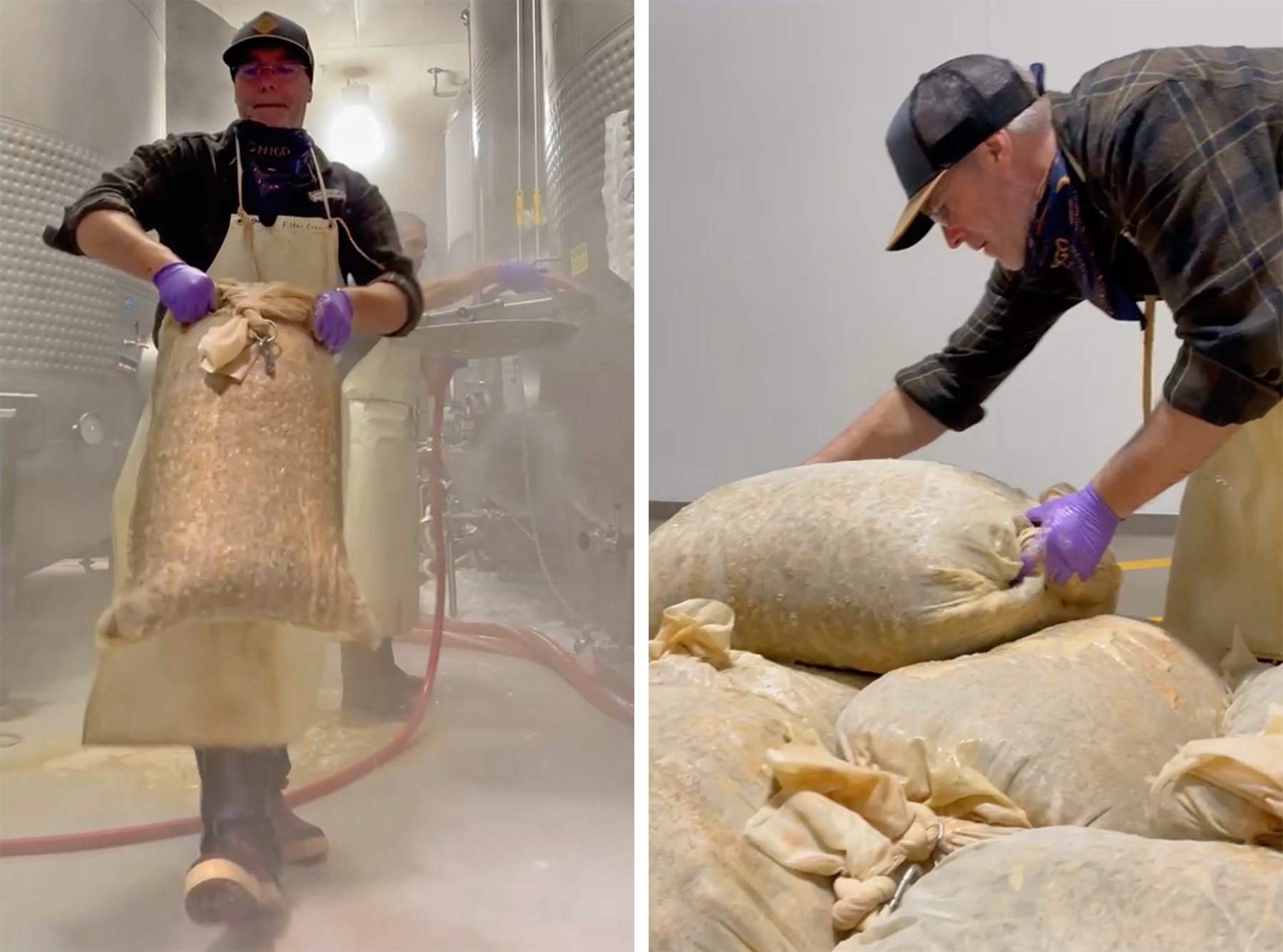
Something we couldn’t help noticing, though, is that sometimes we’d remove those bags — days or even weeks later — and they’d be dry in the middle! While we wouldn’t abandon this method entirely, we wanted to maximize every hop. Enter our revolutionary Hop Torpedo. It started as a napkin sketch in a pub, but eventually we made this custom device to take dry-hopping to a new level.
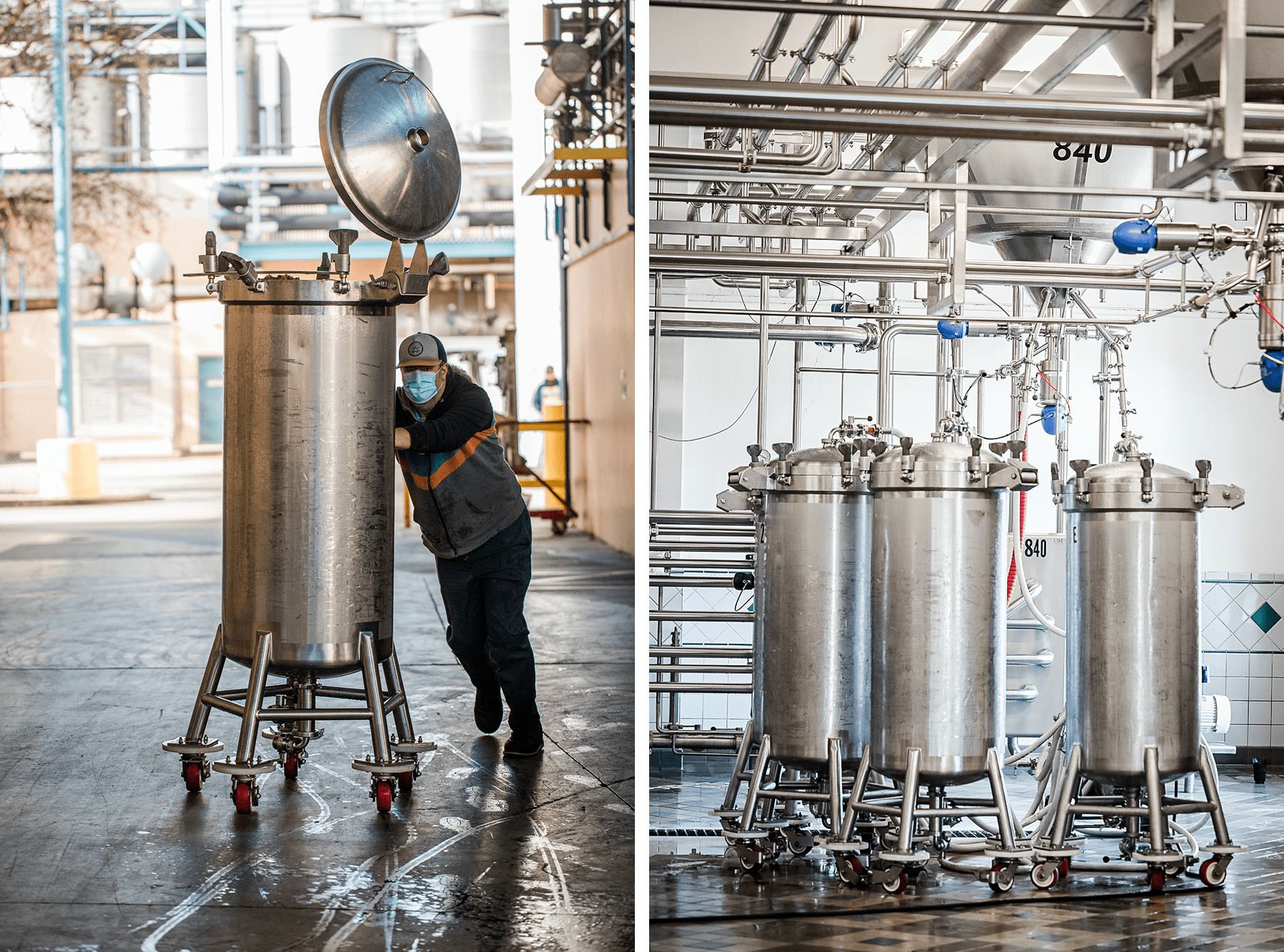
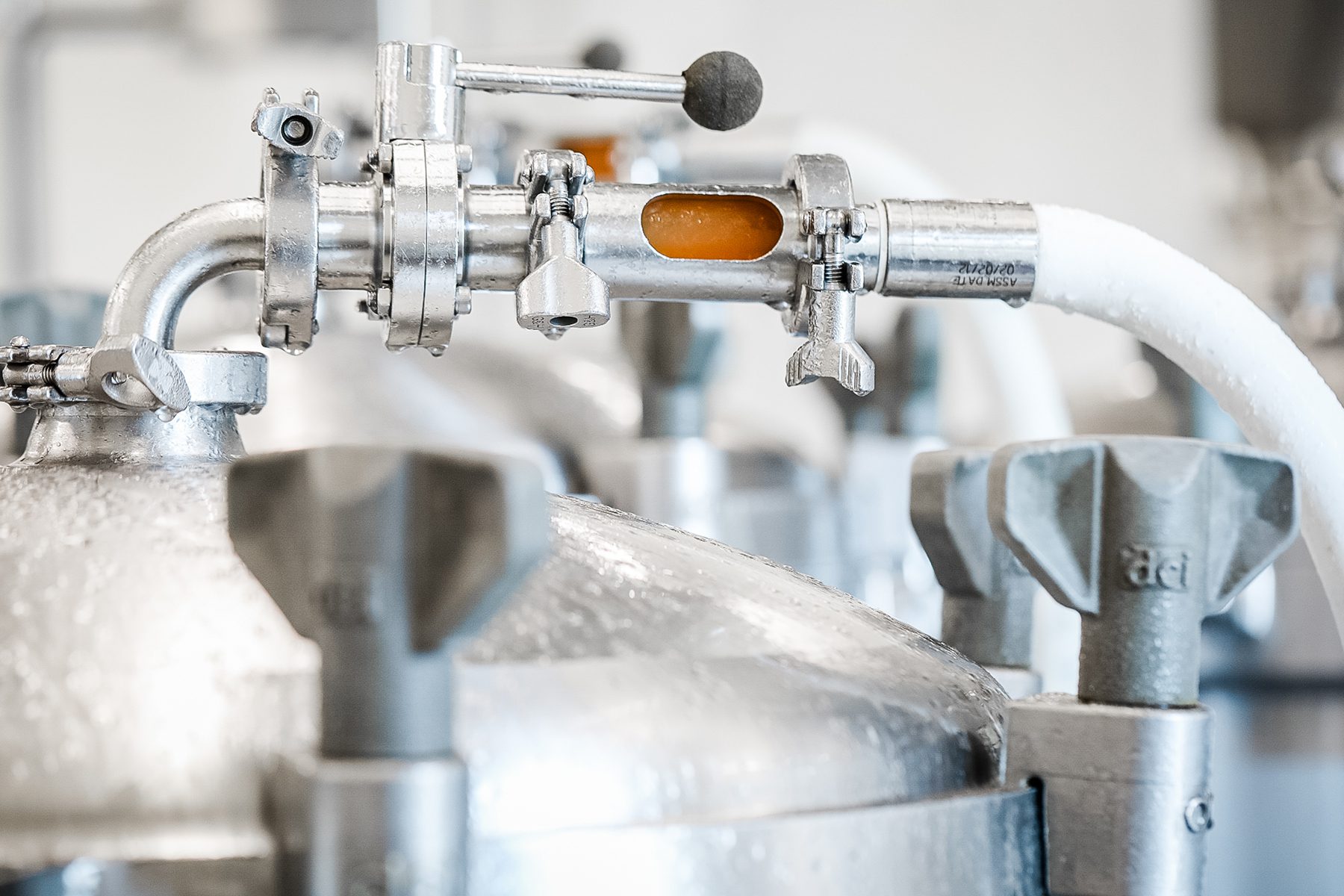
Built like a stainless-steel rocket ship, each Hop Torpedo holds roughly 75 pounds of whole-cone hops, filled by hand — more accurately, jam-packed using industrial tampers. Beer circulates out of a fermentation tank, flows through the column of hops — or multiple columns if you’re using several torpedoes! — and back into the tank. By adjusting the time, temperature and speed of circulation, we can control the aromas and flavors in a finished beer. Torpedo Extra IPA, launched in 2009, was the first beer to showcase the dry-hopping genius of the Hop Torpedo.
Hops come in various forms, including compressed pellets and even lupulin “powder,” which simply means those yellow glands we described earlier — completely separated from all the leaf and plant matter of hop cones. Brewers typically add hop pellets directly into the top of fermentation tanks, while lupulin powder is often mixed with liquid into a “slurry” that’s shot into the tank via pressurized pipes. Then before packaging the beer, brewers filter out any solid hop matter.
Sierra Nevada Dry-Hopped Beers
Ever since Pale Ale sparked the American craft beer revolution, our hop obsession has been front and center. These days it’s almost better to ask what Sierra Nevada beers are not dry-hopped. The technique is often how we shape the bold aromas and flavors across our beer lineup.
By no means a comprehensive list, here are several beers, distributed nationwide, that showcase the delicious results of dry-hopping:
Torpedo Extra IPA
Available Year-round
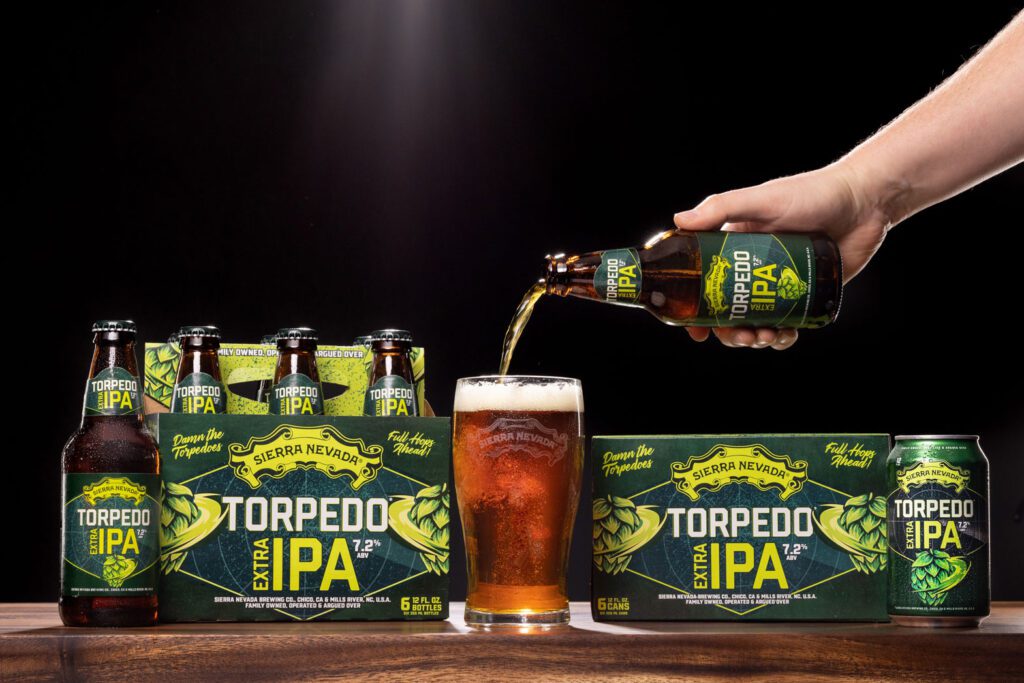
Dry-hopped using our custom Hop Torpedo device, Torpedo Extra IPA is no doubt assertive at 7.2% ABV and 65 IBU, but it’s balanced by caramel malt sweetness. Newer hop varieties Citra and Crystal weave together notes of citrus, pine, and herbal character.
Hazy Little Thing IPA
Available Year-round
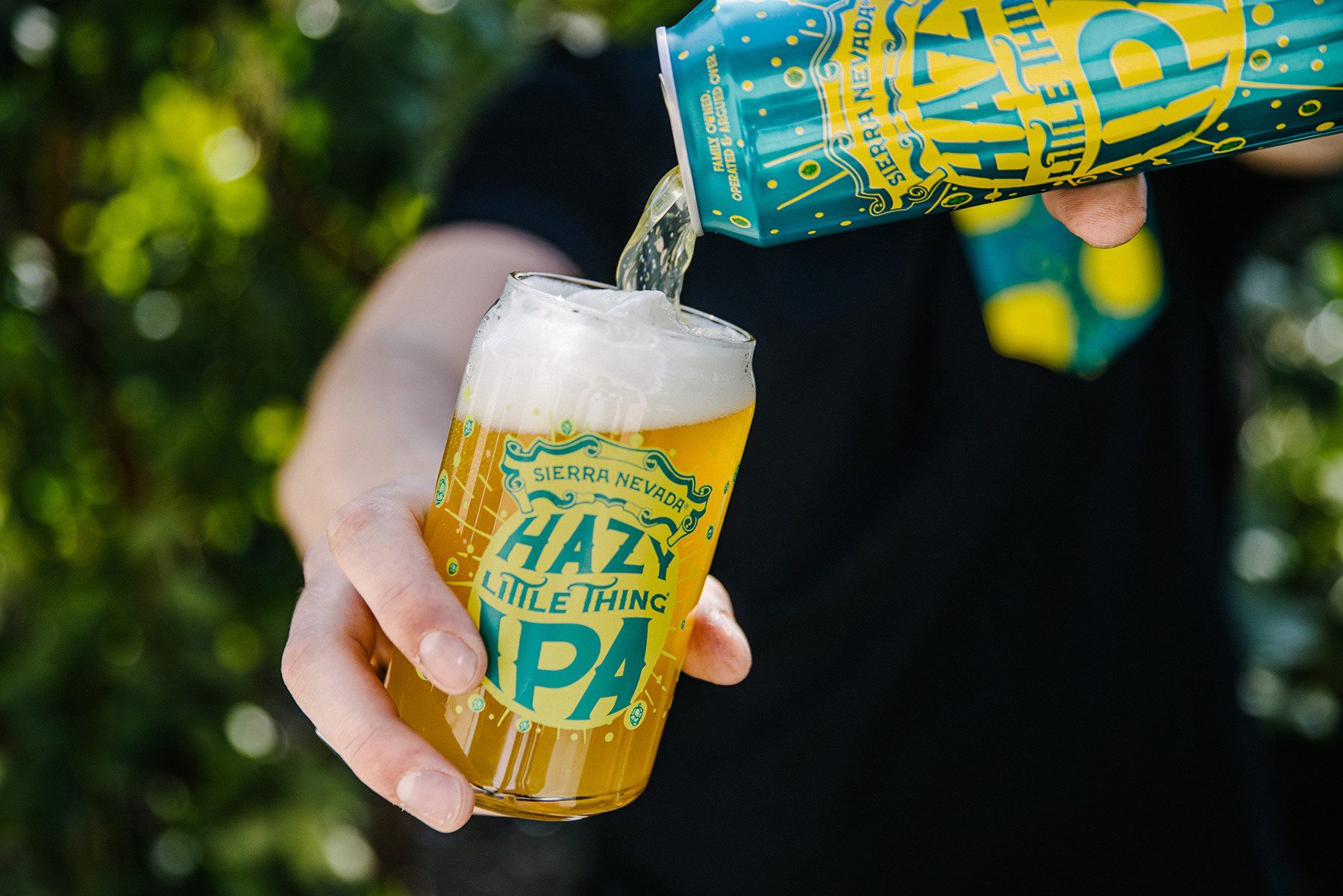
Brewed in the New England IPA style, Hazy Little Thing highlights the magical trio of oats, wheat, and hops. Our carefully selected grains interact with the polyphenols (think pre-haze molecules) in huge amounts of lupulin powder to give you a smooth, juicy haze. Expect fruit-forward flavors like citrus, papaya, and pineapple.
Powder Day IPA
Available January–March
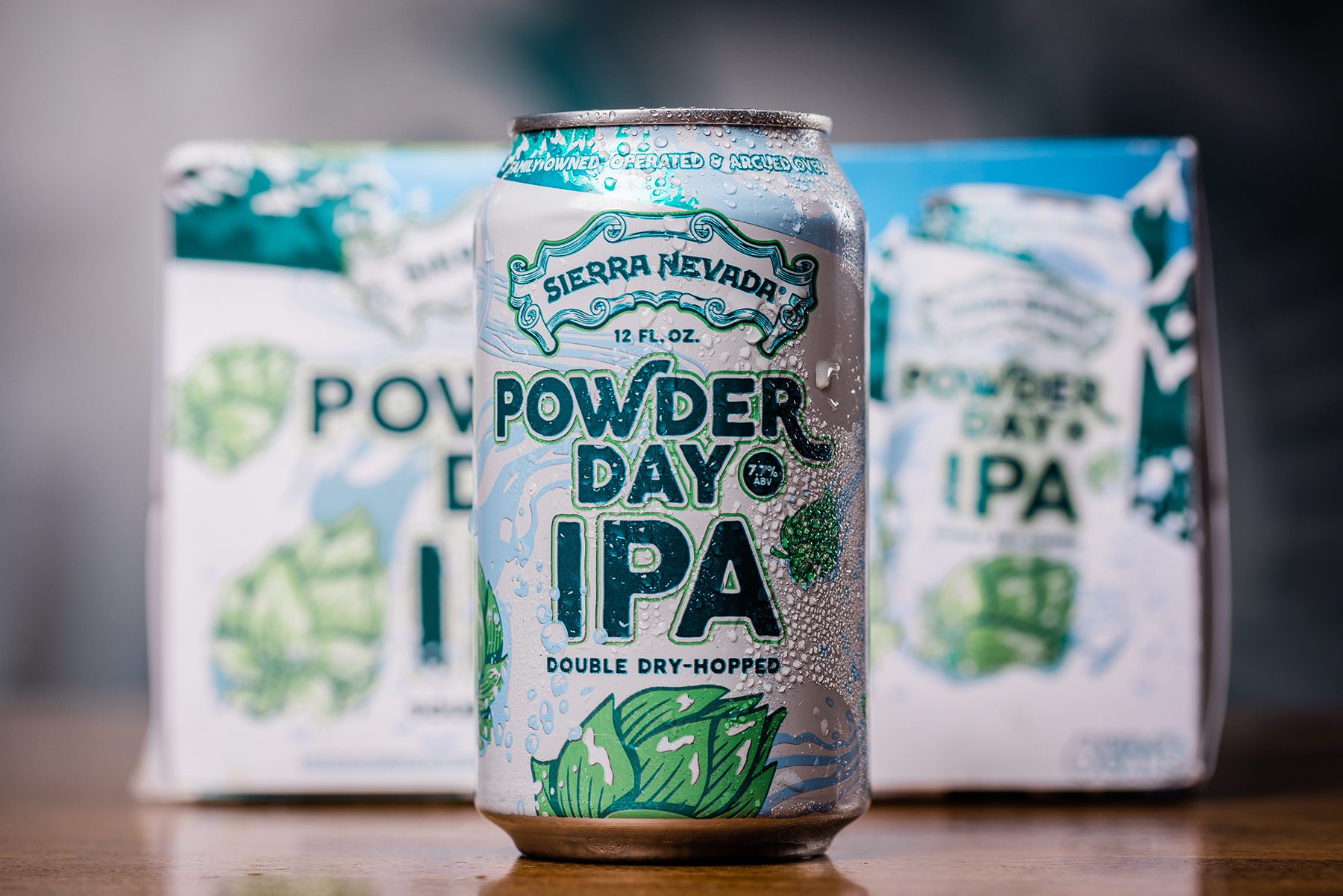
Leap waist-deep into hops. This seasonal IPA is piled high thanks to lupulin powder, the tiny pods of pure aroma and flavor hidden inside hop cones. Double dry-hopping cranks up the depth and complexity in Powder Day, stacking layers of fruity notes: citrus, mango, and pineapple.
Hoptimum Triple IPA
Available May–August
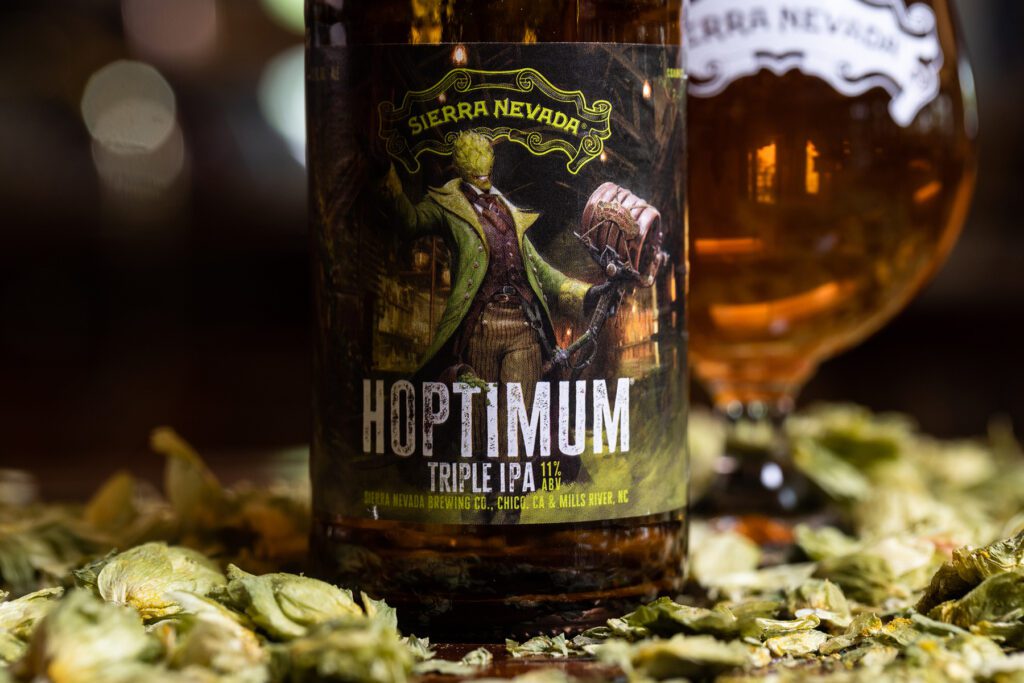
Hoptimum is a dapper brute, at once full of charm yet audacious at 11% ABV. Our brewers revisit this Triple IPA each year, experimenting with hop varieties to find the ultimate mix that’s both aggressive and refined. The 2023 release ramps up the West Coast flavor profile, dry hopping with Simcoe, Idaho 7, Chinook, and Magnum for heaps of resinous pine and a fruity medley of orange, grapefruit, and berries.




